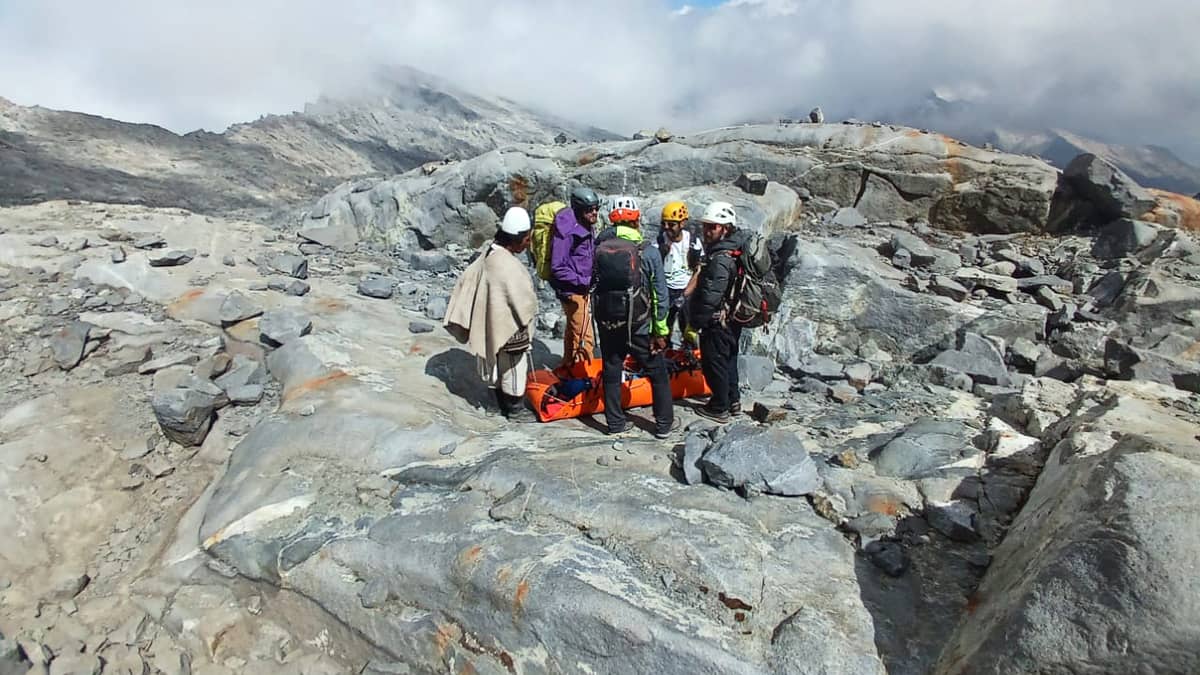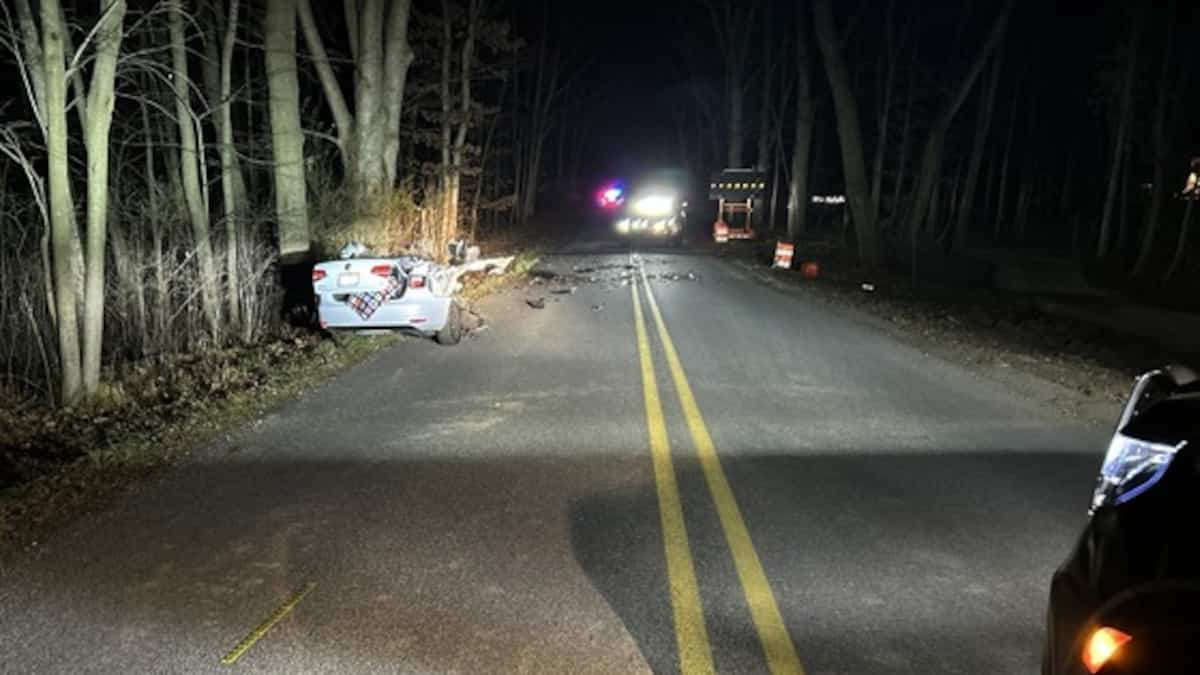
An injured mountaineer and his guide survived for six days and five nights at more than 5,500 meters above sea level, on the slopes of Colombia's highest peak, where they were finally rescued unharmed by a group of Aruahaku indigenous people, we have learned from consistent sources.
• Read also: Video | Illegal refineries: 26 million liters of oil confiscated in Colombia
• Read also: A thermoplastic blanket to save the last glacier in Venezuela
What was supposed to be a classic ascent followed by a paragliding descent into the eternal snow of Colon Peak (5730m) turned into a survival trek in the legendary massif of the Sierra Nevada de Santa Marta (north), the highest coastal mountain range in the world. The world overlooking the Caribbean Sea.
These mountains at the northern end of the Andes are considered sacred to the four indigenous communities (Arhuaco, Wiwa, Coje, and Cancuamo) who live there, and access to foreign tourists is restricted.
In the early hours of Wednesday, March 13, a nine-member expedition, guides and mountaineers (all Colombians), set out to attack the summit of Colon Peak.
This “mountain is very difficult.” “The path to the glacier is very complicated, there are a lot of rocks (…) No one can guarantee you much there, God decides,” one of the two miracles, guide Santiago Aparicio, 28 years old.
The difficulty of the road forced the group to stop before reaching an altitude of 5,500 metres. Two walkers decided to continue the climb, Julio Bermudez and his guide Santiago Aparicio. The others come back down by glider.
By mid-morning, they reached the summit. Mr. Bermudez, the eldest (a 46-year-old doctor), is paragliding, and “a gust of wind catches him and throws him up the wall” of the mountain, says his climbing companion, who immediately descends to help him.
“When I found him, he was conscious, but he had serious injuries,” especially to his chest. “He had a broken clavicle, a broken radius and forearm (…) and he was not able to breathe properly, he had difficulty speaking” and was not able to walk, Mr. Aparicio explains.
The guide tied the injured man with a rope and was able to carefully lower him down a 240-meter chasm into a small rocky ravine, where, according to his calculations, a helicopter could land.
“Don't lose heart!”
Fortunately, Mr. Aparicio wears a GPS watch that allows him to indicate his location to emergency services. But it's too high for a helicopter to land, and you have to wait for rescuers to arrive on foot.
After his resignation, the young guide improvises a makeshift shelter using large stones. “The first night was the hardest, at 5,580 meters above sea level.” “We had no sleeping bags or insulated mattresses, just a thermal blanket,” recalls Mr. Aparicio, who says he has endured temperatures of up to -5 degrees Celsius.
As the day wore on, a new problem arose: “We barely had any snacks (…) we went (almost) two days without food,” he recalls.
On the afternoon of March 14, the Air Force dropped food on them from the air. “These classes saved our lives.” They also throw them equipment to cope with the night and the cold, including a tent that will be damaged in the fall.
Military aviation sends them the following message: Friends, do not lose courage. We are very close. Feed and hydrate yourself, and help will come soon.
The following nights, Mr. Bermudez isolated himself as best he could in his rock hut, and Mr. Aparicio took shelter a little lower. He returns every morning to accompany and support his companion in distress, while he waits for help to arrive on foot.
They finally arrived on Sunday, March 17, in the form of a group of indigenous Aruahaku people, guardians of these mountains, dressed in traditional white clothing, and rescue workers from the Red Cross.
At the end of the difficult journey, when they will once again have to sleep under the stars, they lower the wounded man onto a hammock carried on the men's backs, to a base camp set up by the Red Cross at an altitude of 4,500 meters above sea level. Level, where the two men were finally airlifted and evacuated to a hospital in Barranquilla.
“Miracle,” the national press rejoiced on Wednesday, speaking of the guide as a “hero” and of a model joint relief operation in which indigenous people intervene like savior “angels.”





